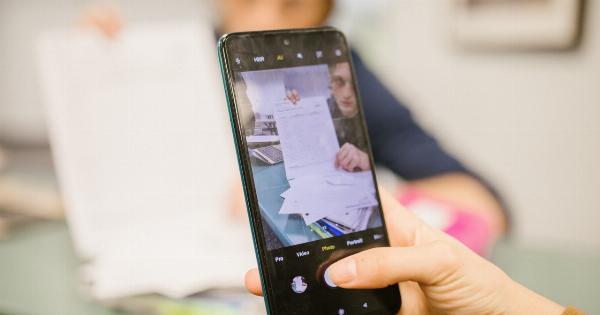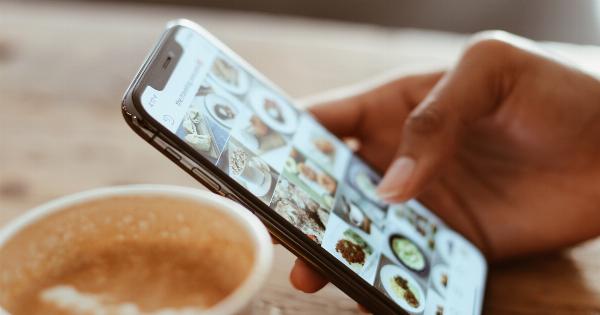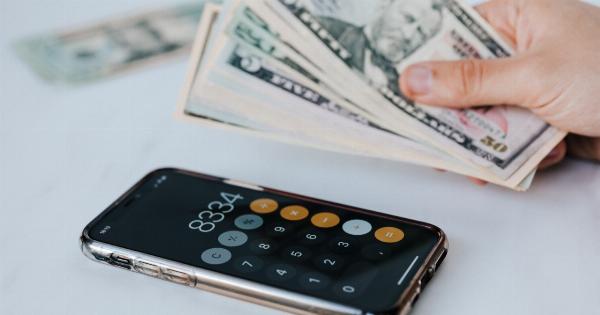In today’s digital age, smartphones have become an integral part of our daily lives. From communication and social media to entertainment and work-related tasks, we rely heavily on our smartphones for various purposes.
However, the excessive use of smartphones can have adverse effects on our relationships, leading to decreased communication, intimacy, and overall satisfaction. In this article, we will explore how much smartphone use is considered excessive and discuss the impact it can have on relationships.
The growing problem of smartphone addiction
Smartphone addiction, also known as nomophobia (fear of being without a mobile device), is a growing concern in today’s hyper-connected world.
According to a study conducted by the Pew Research Center, 81% of Americans own a smartphone, with many compulsively checking their devices multiple times per hour. This excessive smartphone use can create a wedge between partners, as one or both individuals may be more invested in their virtual world than their real-life relationship.
The impact on communication and intimacy
One of the most significant consequences of excessive smartphone use is the negative impact it can have on communication and intimacy in a relationship.
When partners are constantly glued to their screens, it leaves little room for meaningful conversations and face-to-face interaction. Texting and messaging can never fully replace the emotional connection that comes from seeing and hearing your partner’s voice in person.
Over time, the lack of quality communication can lead to feelings of disconnection, loneliness, and emotional dissatisfaction.
Distraction during quality time
Smartphones often become a silent third party in a relationship, competing for attention during quality time spent together.
Whether it’s during a romantic dinner, movie night, or simply cuddling on the couch, the constant pinging of notifications and the irresistible urge to scroll through social media feeds can be disruptive and disrespectful to your partner. It sends a message that whatever is happening on the screen is more important or interesting than the person sitting right beside you. Over time, this can erode the trust and emotional bond in a relationship.
The erosion of trust and transparency
Excessive smartphone use can also lead to the erosion of trust and transparency between partners.
Constantly checking messages, social media, or emails in the presence of your partner can give off the impression that you are hiding something or not fully present. It can lead to suspicion, jealousy, and an overall breakdown in trust. Furthermore, secretive behavior such as password-protecting your phone, deleting messages, or hiding apps can further fuel feelings of mistrust and anxiety.
Comparison and self-esteem issues
Social media, a significant component of smartphone use, can contribute to comparison and self-esteem issues within a relationship. Seeing carefully curated highlight reels of other people’s lives can lead to feelings of inadequacy and jealousy.
This constant exposure to unrealistic standards can strain a partner’s self-esteem and create a sense of resentment towards their own life or relationship. Moreover, the inclination to constantly compare your relationship to others can overshadow the unique qualities and strengths that make your partnership special.
Establishing healthy smartphone boundaries
While it is unrealistic to completely eliminate smartphone use from our lives, establishing healthy boundaries is crucial to maintaining a strong and fulfilling relationship. Here are a few tips to help strike a balance:.
1. Designate tech-free times and zones
Set aside specific times or locations where smartphones are off-limits. This could include meal times, date nights, or even bedroom hours.
By creating these tech-free zones, you can focus on building deeper connections and fostering quality communication without distractions.
2. Practice active listening
When engaging in conversations with your partner, be fully present and actively listen. Put your phone on silent or turn off notifications to avoid the temptation to check it.
Show genuine interest by maintaining eye contact, nodding, and providing supportive responses.
3. Prioritize quality time
Make an effort to spend quality time together without the interference of smartphones. Engage in activities that you both enjoy, such as going for a walk, cooking together, or participating in a hobby.
By dedicating uninterrupted time to each other, you can strengthen the emotional bond in your relationship.
4. Have an open conversation
Discuss your concerns and expectations regarding smartphone use with your partner. Be open to compromise and find common ground that works for both of you.
This can be an opportunity to set shared rules and boundaries that promote healthy smartphone habits while nurturing your relationship.
5. Find alternative activities
Encourage and explore alternative activities that do not involve smartphones. Rediscover old hobbies, plan outings together, or engage in activities that foster face-to-face interaction and enjoyment.
By finding new ways to spend time together, you can create lasting memories and strengthen your bond.
The importance of self-awareness
Individual self-awareness plays a crucial role in addressing excessive smartphone use within a relationship. Reflect on your own habits and motivations for smartphone use.
Are you using it as an escape from relationship issues or boredom? Are you seeking validation or social connection through virtual means? By understanding your own triggers and desires, you can work towards healthy habits that prioritize your relationship and overall well-being.





























